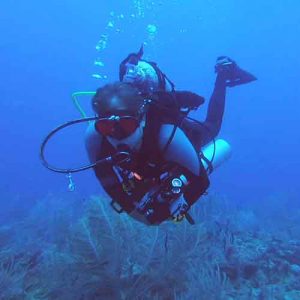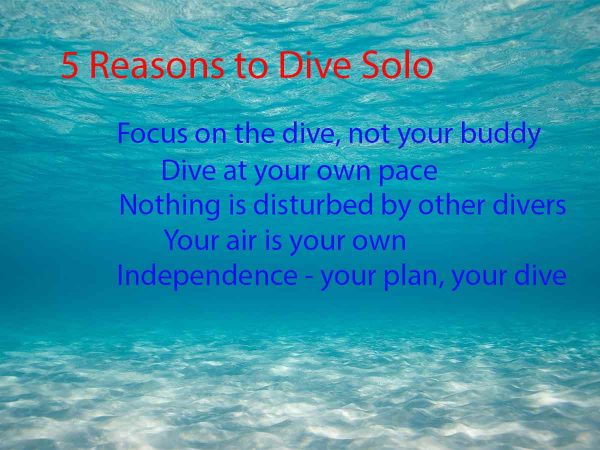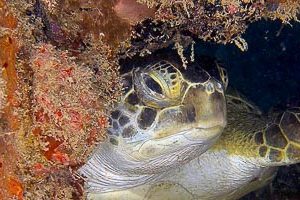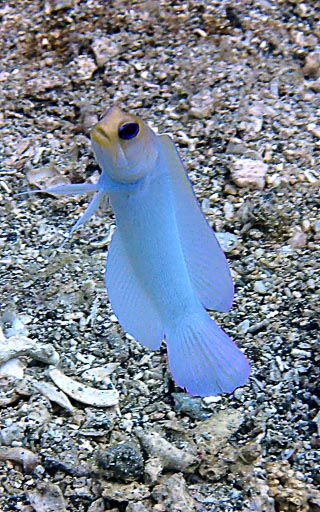Solo Diving, is it for you?
I teach a Solo Diving course, its not for everybody. There are many things to consider when thinking about diving solo.
What is Solo Diving?
Solo Diving is a style of Scuba Diving where you are completely self reliant, you do not have or wish to have a dive buddy.
Solo Divers are trained differently, they need to carry extra gear, they not only have a “Plan A” but also a “Plan B” for when things go wrong.
The three fundamentals of Solo Diving:
1. The right mindset, “thinking like a diver” is not enough, now you have to “think like a Solo Diver”.
2. The right Dive Plan, along with a Plan B for when things go wrong.
3. The right equipment, more safety equipment is needed and of course a completely independent backup air supply.
Training for Solo Diving:
Both Padi and SDI offer a Self Reliant or Solo Diver Course. Entry requirements are high:
Minimum age 21 yrs (SDI), 18 yrs (Padi).
Minimum of Advanced Open water qualified.
Minimum of 100 Logged Dives.
100 logged dives is a lot of experience, it shows that for Solo Diving the experience level is more important than previous diving qualifications.
Gear for Solo Diving:
This is all gear you personally own, you wear it in the same configuration for every dive, you are 100% conversant with this gear.
A second independent air supply – usually a Pony Bottle. (No “Spare-Airs” allowed).
Obviously twins (doubles) or Sidemount with 2 tanks is also ideal.
A spare mask.
An SMB or two.
A reel (and a spare).
Two cutting devices, placed so you can use either hand.
A backup computer or a separate backup timing device and depth gauge.
Surface safety equipment, whistle, mirror, signalling devices etc.
A slate for your dive plan.
Depending on gear configuration you may need other pieces of equipment particular to you.
What’s it like to Solo Dive?
I find true Solo Diving more relaxing than diving with a Buddy. I have no obligation to look after anyone else, I have nobody to contradict me when I say “the Lobster was THIS BIG.”
I find it ideal for when I am doing a serious photography dive (any dive buddy out there that wants to volunteer to stay with me in one spot for 15 minutes while I photograph a Yellow Frogfish ?) .
BUT I do prepare for the worst, I understand that there is nobody there to cut me loose if I get tangled up. I understand that I could lose a tank or regulator due to a gear failure.
I understand that my mask could break, I expect and prepare for when everything goes wrong, it is my responsibility and my risk.
The Self Reliant Diver Course.
I teach the Padi Self Reliant (Solo Diver) course.
The standards for this course are very high. You need complete mastery of all basic dive skills. You also need to own and use every piece of required gear (I will loan you a Pony Bottle and Regs-that’s it).
Above all you need to demonstrate appreciation of the risks involved and that all important “mindset”.

Facts about Solo Diving
Losing a buddy in recreational diving IS NOT Solo Diving. “Lost Buddy” on a dive is a failure by both you and your buddy, a complete breakdown of safe diving protocols.
Solo diving is not inherently more dangerous than Buddy Diving.
The risks may be greater but those same risks are appreciated, planned for and controlled by a properly trained Solo Diver.
A good Solo Diver is inherently a very competent diver and makes an excellent dive buddy.











